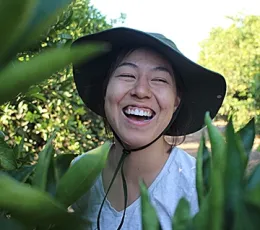
Jill Oberski, who studies with professor and ant specialist Phil Ward, submitted an infographic titled “Discovery and Diversity: The Importance of Systematic Entomology in Today's World in the Systems,” in the Evolution and Biodiversity (SysEB) Section and won a second-place award.
Oberski also won a second-place award for her dissertation research “Unraveling the Phylogeny and Biogeography of Dorymyrmex, a New World Amphitropical Disjunct” in the category SysEB: Phylogenetics 2.

The research presentations are highly competitive. "Entomology 2019 was an exciting four days filled with 236 scientific sessions featuring 2,205 oral and 680 poster presentations with 3,653 attendees from 61 different countries," an ESA spokesman said. "This year was a record setting event with 1,150 students attending!"
Those in the (SysEB) Section study insect anatomy, classification, and history. The section focuses on systematics, evolution, and biodiversity, but it also includes morphology, ecology, population dynamics, genetics, phylogeny, nomenclature, biogeography, zoology, and other specialties.
Those in the PI-E section deal with insect interactions with plants. Topics include behavioral, ecological, and evolutionary relationships in natural landscapes, as well as integrated pest management (IPM) in agriculture, horticulture, forests, and lawn and garden. This includes such aspects as crop protection, host-plant response, plant pathology/vectors, pollination, biological control and microbial control.
Both Oberski and Kahl also served as members of the UC Linnaean Games Team, comprised of UC Davis and UC Berkeley graduate students, that competed with other university teams throughout the nation. The Linnaean Games, launched in 1983, are lively question-and-answer, college bowl-style competitions on entomological facts. The teams score points by correctly answering random questions.

